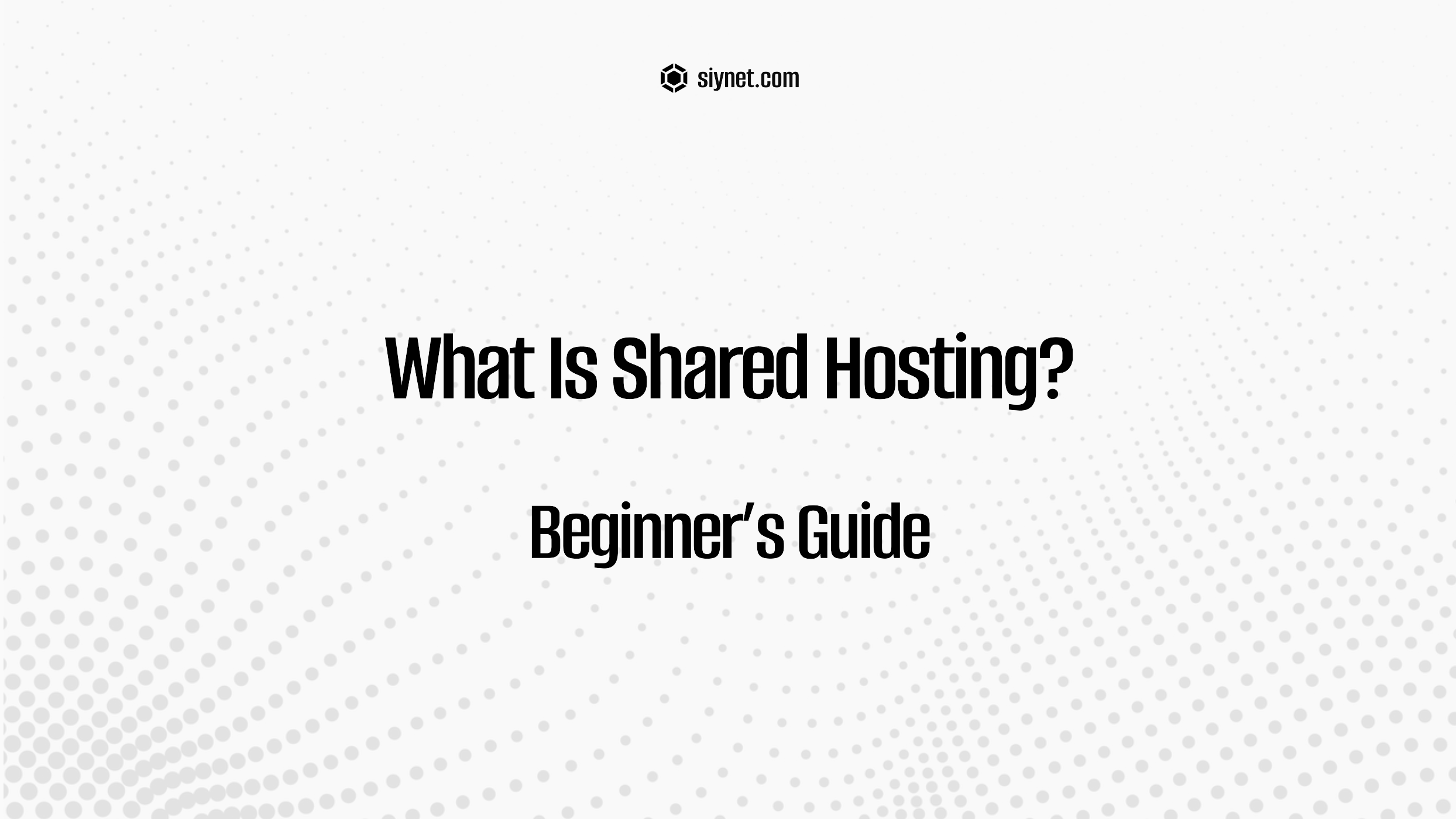
What is Shared Hosting?
Shared hosting is a type of web hosting where multiple websites share the same server and its resources, such as CPU, RAM, and bandwidth. It’s one of the most common types of hosting for beginners and small to medium-sized websites because of its affordability and ease of use.
When you sign up for shared hosting, you essentially share a server with many other websites. While your website gets its own directory and a unique IP address, the server’s resources are divided among all the websites hosted on it. This means that your website doesn’t have to handle the cost of maintaining a server on its own.
How Does Shared Hosting Work?
In shared hosting, a hosting provider sets up a server and divides it into smaller sections for various websites. Each section is allotted a portion of the server’s resources. The websites on the same server may be different in size and purpose, ranging from personal blogs to small business sites.
For example:
- If 100 websites are hosted on a single server, all the websites will rely on the same resources (CPU, RAM, bandwidth, etc.).
- If one website experiences a surge in traffic or runs resource-heavy applications, it can affect the performance of the other sites on that server.
Pros of Shared Hosting
- Affordability:
Shared hosting is usually the most budget-friendly option for hosting your website. Prices typically start as low as $2–$10/month, making it an attractive option for beginners or small websites that don’t need a lot of server resources. - Easy to Set Up:
Shared hosting is beginner-friendly. Hosting providers usually offer user-friendly control panels like cPanel, which make it easy to set up your website, manage files, and install applications like WordPress. - No Server Management Required:
Since the hosting provider takes care of server maintenance, you don’t need to worry about complex technical tasks such as server configuration or security updates. - Good for Small Websites:
If your website is relatively small or you expect low to moderate traffic, shared hosting is often more than sufficient. It’s ideal for personal blogs, small business websites, or portfolios. - Included Features:
Most shared hosting plans come with essential features such as:
- Email hosting
- Free SSL certificates
- Website backups
- One-click software installations (e.g., WordPress, Joomla)
Cons of Shared Hosting
- Limited Resources:
Since resources are shared among multiple websites, your website may experience slowdowns or crashes if another site on the same server consumes too many resources. This can especially be a problem if your site starts to grow or experience unexpected traffic spikes. - Limited Customization:
Shared hosting usually comes with restrictions on the software and configurations you can use. If you need custom server settings, you may have to upgrade to a more advanced hosting plan like VPS (Virtual Private Server) or dedicated hosting. - Security Concerns:
Shared hosting can pose security risks. Since multiple websites share the same server, if one website becomes compromised, it can potentially affect others on the same server. Hosting providers do offer security measures, but you are somewhat dependent on their protections. - Performance Variability:
The performance of your website can fluctuate depending on how much traffic and resources other websites on the same server are using. If another site on your server experiences a spike in traffic, it could slow down your website. - Not Ideal for High-Traffic Sites:
If your website experiences high levels of traffic or has complex functionality (like e-commerce or custom applications), shared hosting might not provide the necessary resources to handle the load. For such sites, upgrading to VPS or dedicated hosting would be a better option.
Is Shared Hosting Good for You?
Shared hosting is good for:
- Beginners: If you’re new to website hosting and just need a simple website or blog, shared hosting is a low-risk, low-cost way to get started.
- Small Websites: If your website is relatively small and you don’t expect high traffic, shared hosting is perfect. Examples include blogs, personal websites, small portfolios, or local businesses.
- Budget-Conscious Users: If you have a limited budget and don’t need a lot of server resources, shared hosting offers a cost-effective way to get online.
Shared hosting is not ideal for:
- High-Traffic Websites: If you expect heavy traffic, shared hosting could become a bottleneck, resulting in slow load times or downtime.
- E-commerce Websites: Online stores usually require higher security, dedicated resources, and performance, which makes shared hosting less suitable.
- Websites with Special Requirements: If you need specific server configurations, custom software, or advanced features, you might outgrow shared hosting quickly.
Conclusion
Shared hosting is a great choice for small, low-traffic websites and beginners looking for an affordable way to get their site online. It’s easy to use, cost-effective, and requires minimal technical knowledge. However, if your website grows or requires more resources, you may need to consider upgrading to a VPS or dedicated hosting solution.
If you’re just starting out and have a simple website or blog, shared hosting will likely serve your needs very well. As your website expands and your requirements change, you can always scale up to more powerful hosting options.


Leave a Reply